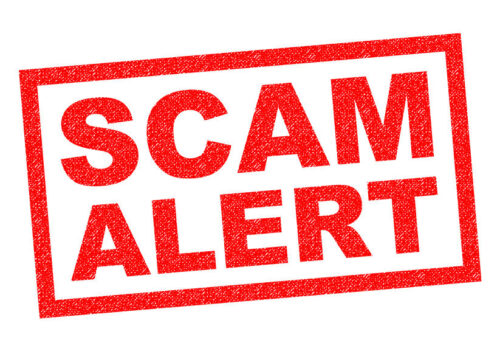Tips for avoiding door-to-door scams

Summer and warmer weather often bring out more door-to-door scammers. These scammers impersonate legitimate salespeople and knock on your door offering to sell a product or service, but their primary goal is to steal from you.
“Many businesses rely on door-to-door sales, but it can be hard to know if the next time the doorbell rings it is a legitimate salesperson or a scammer,” said Secretary of State Robert J. Rodriguez. “To help you better understand how you can protect yourself, our Division of Consumer Protection is providing practical tips to help you identify a potential door-to-door scammer and avoid being cheated out of your hard-earned money.”
Door-to-door scams have been around for years and are among the most common scams against older adults. Door-to-door scammers disguise themselves as employees with uniforms and badges or as college students employed in a part-time job. They often trick consumers into providing personal information or money. In some cases, they may even distract your attention so that their accomplice can sneak into your home to steal from you. To avoid getting cheated, below are a few examples and tips to avoid this type of scam.
Common Types of Door-to-Door Scams
•Fake Solar Energy Providers: These imposters try to take advantage of consumers that are looking for sustainable power to fuel their homes and try to convince you to sign “enrollment forms” or “applications” with the attempt to steal personal information or perpetuate other fraudulent activities.
•Fake Utility Representatives: Fraudsters may pose as utility workers and say there’s a utility emergency they need to inspect. Many burglars work in pairs, as one gains your attention, the other sneaks into your home and steals. Ignore any “utility representative” that requests access to your home without scheduling with you in advance. Utility companies generally send a letter in advance to alert residents if they need access to their home or building.
•Home Improvement Scammers: Most good contractors are too busy to seek business at your front door. Be wary of contractors that knock on your door offering repairs or home improvement projects at a “bargain price” or because they have extra supplies left over from another project in your neighborhood. These scammers may be quick to disappear if the homeowner provides any type of payment upfront.
•Asphalt Paving Scam: Be wary of paving contractors who say they just happened to be in the neighborhood or have asphalt left over from another job. Reputable asphalt contractors know with great accuracy how much material they need to finish a job and don’t usually have any left over. These scammers may offer to pave your driveway for a deal that seems too good to be true, then once the work is finished, try to charge a higher price than originally quoted. The materials and workmanship are often very low quality leaving the homeowner with a failing or crumbling driveway, but by then, the scammer is long gone. Asphalt scammers may also begin to pave over or tear up your old driveway without your knowledge or permission, then demand a high payment. If that happens, call the police immediately.
•Fake Home Security Reps: According to the Federal Trade Commission, some fraudsters may come to your home to make fake home security offers. You’ll know it’s a scam if they claim that there have been several robberies in your neighborhood and they’re offering free security inspections. It’s also a sign of a scam if they say that they are there to upgrade or replace your existing security system or claim that your security company has gone out of business.
Tips to Avoid Door-to-Door Scams
•Research the business: Most jurisdictions require that door-to-door solicitors obtain a license from the Municipal Clerk, Police Department or local consumer protection agency and carry a government-issued identification card. Some local laws regulate the hours when door-to-door solicitation can be conducted. Look for your local law. Just click on New York State and select your local government from the list provided to access the search page. (Hint: a good search term is “solicit.”)
•Ask for identification: Always check the credentials of unknown callers and do not phone the number on the ID card; instead confirm that the number is legitimate by checking the company’s online website.
•Know the difference between a legitimate salesperson and a scammer. Legitimate salespeople will: identify themselves immediately and have a photo identification in sight; not use high-pressure sales tactics; respect a consumer’s right to end the conversation or transaction at any time; give you time to do your research; explain verbally and in writing the cancellation policy; provide information about the offer/product in writing.
•Follow general safety precautions. Always keep front and back doors locked. Never pay in cash. A check or credit card payment may be cancelled online or by calling your bank’s customer service line. Report any suspicious callers or activity to the police immediately.
•Know your rights. If you buy from a door-to-door seller and quickly regret it, know that under New York State law, consumers have three business days to opt out of a door-to-door sales contract. Sellers must provide written notification of the right to cancel. Additionally, federal law allows you three business days to cancel and get a full refund on most purchases of $25 or more that are made in your home.
The Consumer Assistance Helpline 1-800-697-1220 is available Monday to Friday from 8:30 a.m. to 4:30 p.m., excluding state holidays, and consumer complaints can be filed at any time at http://www.dos.ny.gov/consumer-protection.
Provided information



